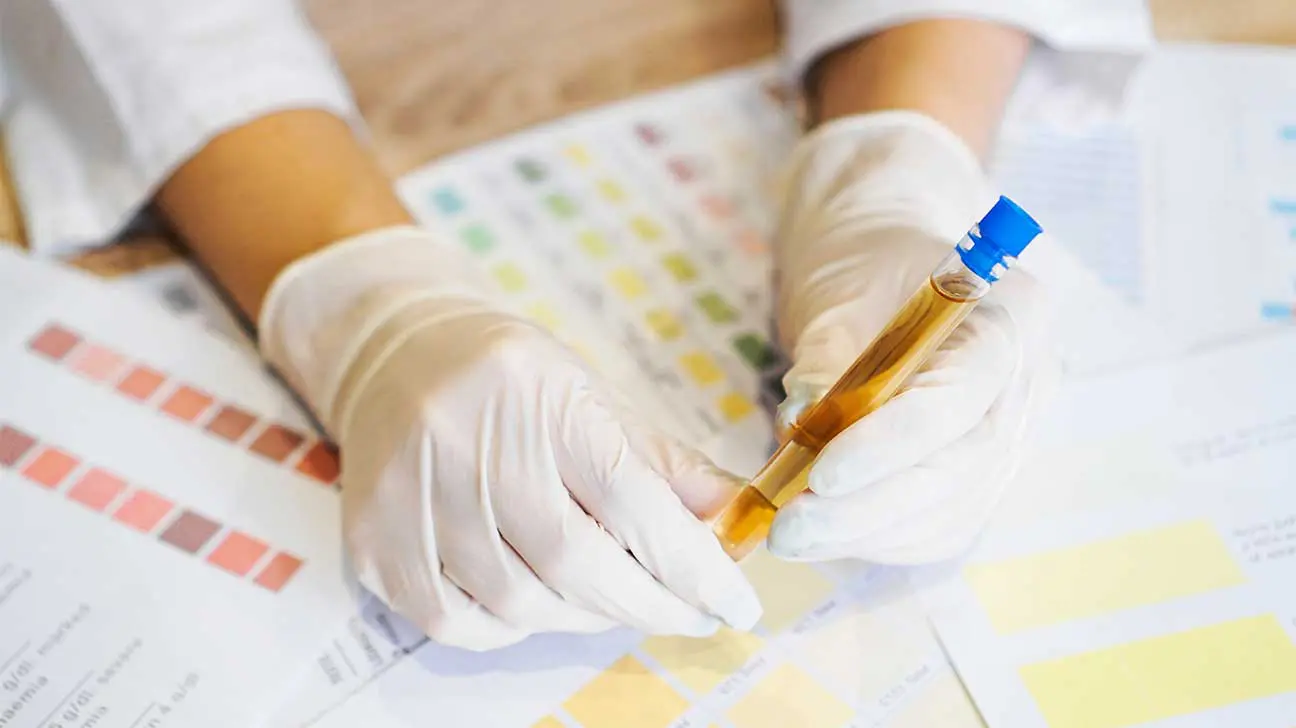
Standard urine screenings will not detect gabapentin use. Detecting the use or abuse of gabapentin will require a specialized urine screening.
Detecting Gabapentin In Urine
Gabapentin is a prescription medication that can stay in the urine for up to two to three days on average. This time-frame may be longer for people with impaired renal (kidney function).
What Factors Can Affect How Long Gabapentin Stays In Urine?
The average estimate for how long gabapentin stays in urine is two to three days after a person’s last dose. This can vary, however, according to several personal and biological factors.
Kidney Function
People who have impaired renal (kidney) function will likely have traces of gabapentin remain in their system for longer. This is because gabapentin is metabolized by the kidneys.
If you have impaired kidney function, gabapentin may be detectable in urine for up to 30 days after last use. Be sure to tell your doctor if you have kidney problems before taking gabapentin.
Dosage
Taking high doses of gabapentin may affect how long it stays in urine.
Route Of Administration
How a drug enters the body can affect how long it stays in the system, based on how quickly it reaches the bloodstream.
Injecting or smoking drugs, for instance, can result in shorter detection windows compared to swallowing or snorting.
Use Of Multiple Drugs/Polysubstance Abuse
Gabapentin may stay in urine for a longer amount of time if it’s taken with other drugs, including other prescription drugs, illicit substances, and alcohol.
Metabolic Rate
The rate of a person’s metabolism can affect how long it takes to pass through a person’s system.
Older age, poor health, and hypometabolic conditions may cause a longer detection time for gabapentin in urine.
Getting Gabapentin Out Of Your System
People who are physically dependent on gabapentin may have a difficult time stopping their gabapentin use on their own.
If you’ve been taking gabapentin for more than a few weeks, talk to your doctor before trying to reduce your dose or stop taking gabapentin.
Stopping gabapentin all at once may trigger withdrawal symptoms, such as anxiety, pain, sweating, nausea, and difficulty sleeping.
Finding Treatment For Gabapentin Abuse And Addiction
If you or a loved one is abusing gabapentin, we can help you find a treatment program that meets your needs.
Call our helpline today to learn more about gabapentin and to find a drug treatment program that’s right for you.
Addiction Resource aims to provide only the most current, accurate information in regards to addiction and addiction treatment, which means we only reference the most credible sources available.
These include peer-reviewed journals, government entities and academic institutions, and leaders in addiction healthcare and advocacy. Learn more about how we safeguard our content by viewing our editorial policy.
- JAMA Network—Gabapentinoid Use in the United States 2002 Through 2015
https://jamanetwork.com/journals/jamainternalmedicine/fullarticle/2666788 - Substance Abuse and Mental Health Services Administration (SAMHSA)—Drug Testing
https://www.samhsa.gov/workplace/resources/drug-testing - U.S. Food and Drug Administration (FDA)—Neurontin Label
https://www.accessdata.fda.gov/drugsatfda_docs/label/2010/020235s043lbl.pdf - U.S. National Library of Medicine: Medline—Gabapentin
https://medlineplus.gov/druginfo/meds/a694007.html


